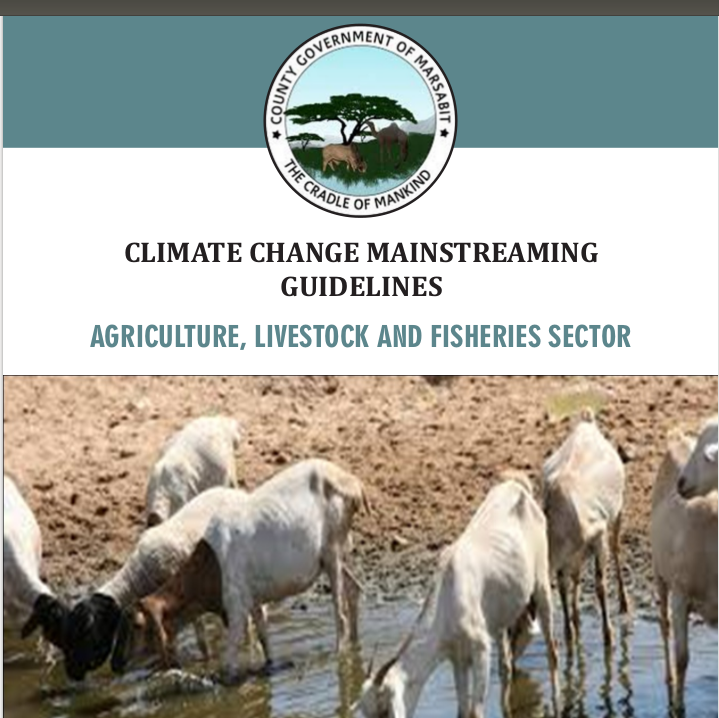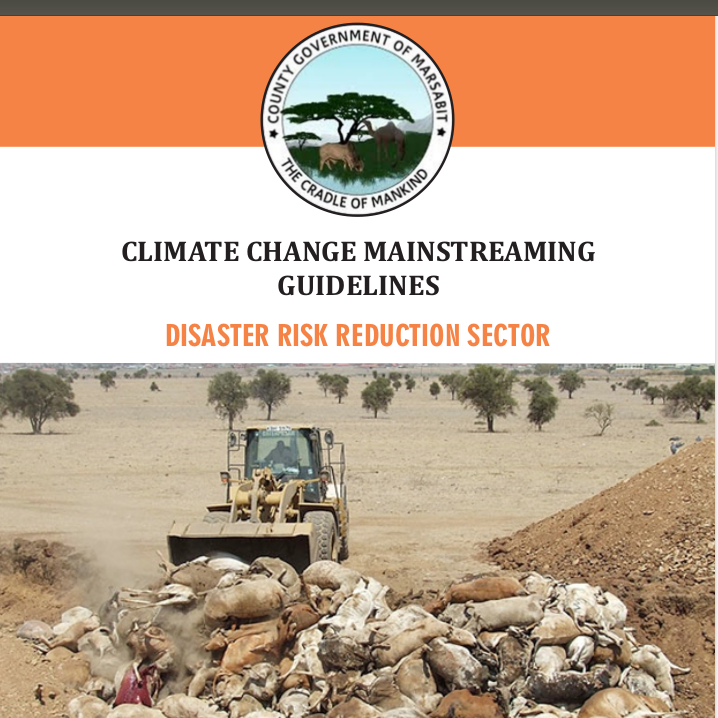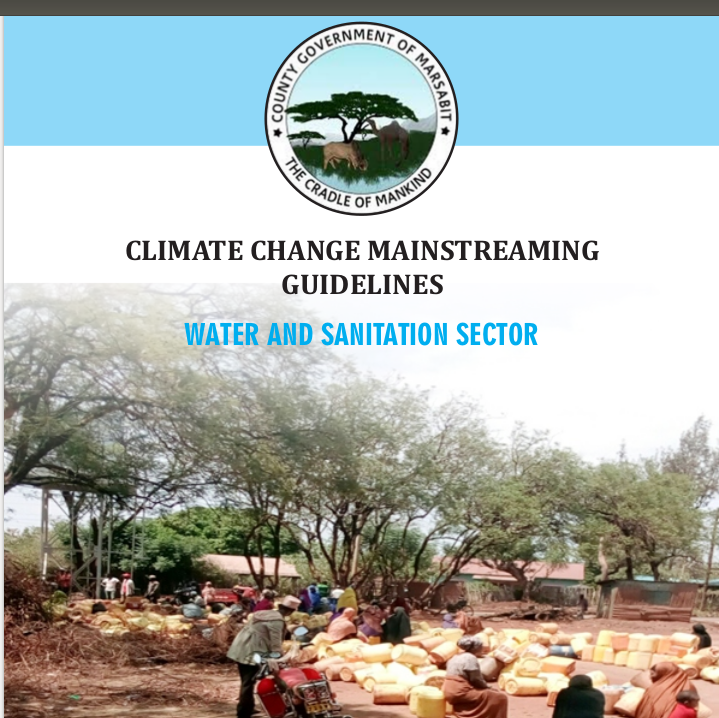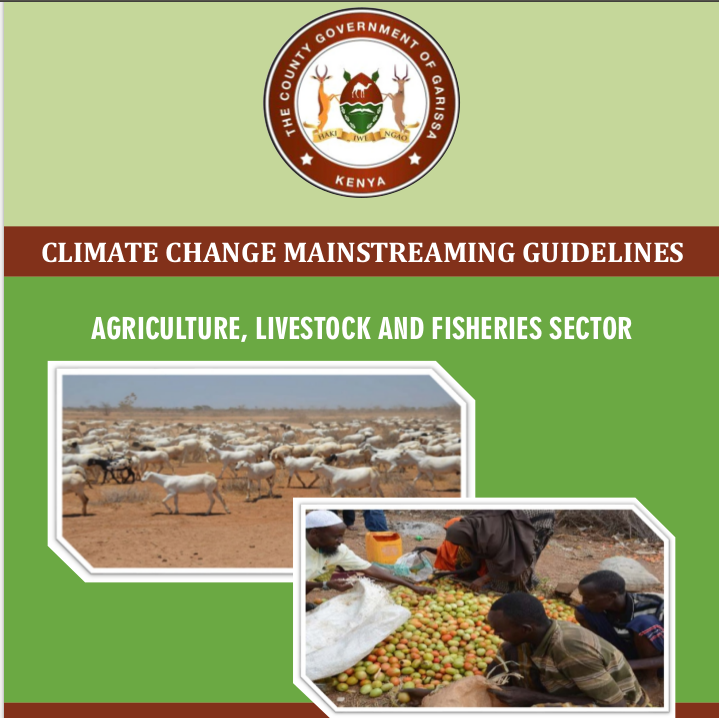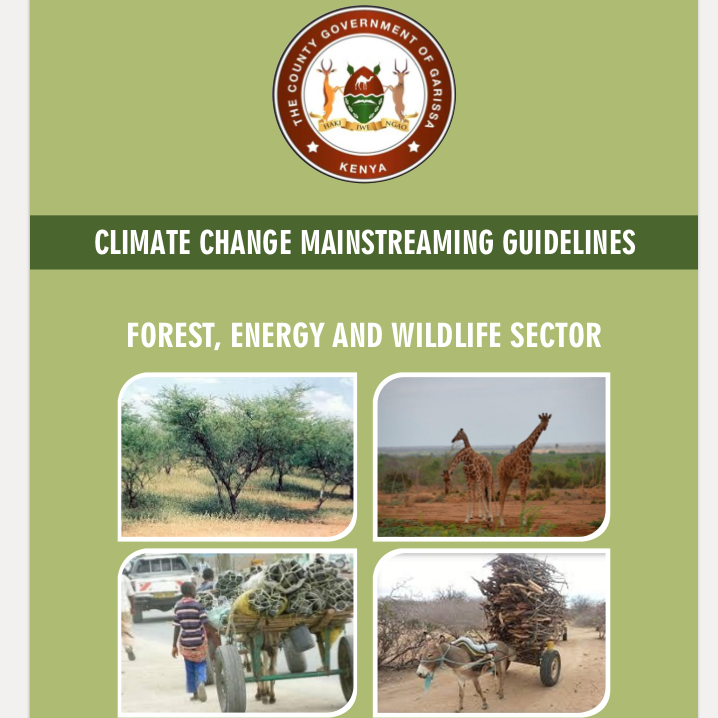PUBLICATIONS
Marsabit - Agriculture, Livestock and Fisheries Sector - Climate Change Mainstreaming Guidelines
Marsabit's livestock production relies heavily on natural systems such as rain fed pasture. These livestock systems are very climate sensitive, being vulnerable to the impacts of changing and irregular rainfall patterns and droughts. These guidelines are intended to assist the County Government of Marsabit to attain this climate change mainstreaming in the agriculture sector by providing a framework for integrating climate change responses for the agriculture sector into county planning processes, especially the CIDP, as well as other processes such as performance contracting and the budget making process.
Marsabit - Disaster Risk Reduction Sector - Climate Change Mainstreaming Guidelines
The sustainable development of Marsabit County significantly depends on the design and implementation of mechanisms that trigger and enhance climate change resilience and adaptive capacity. These guidelines are intended to assist the County Government of Marsabit to attain this climate change mainstreaming in the disaster risk reduction sector by providing a framework for integrating climate change responses for the sector into county planning processes, especially the CIDP, as well as other processes such as performance contracting and the budget making process.
Marsabit - Water and Sanitation Sector - Climate Change Mainstreaming Guidelines
Marsabit County being an already water stressed county due to its location in the ASAL zone will experience the impacts of climate change on its water and sanitation sector with greater severity and intensity. These guidelines are intended to assist the County Government of Marsabit to attain this climate change mainstreaming in the water and sanitation sector by providing a framework for integrating climate change responses for the water and sanitation sector into county planning processes, especially the CIDP, as well as other processes such as performance contracting and the budget making.
Garissa - Agriculture, Livestock and Fisheries Sector - Climate Change Mainstreaming Guidelines
Climate change mainstreaming in the various sectors is necessary to equip various coordinating departments in the county government with the tools to effectively respond to the complex challenges of climate change. These guidelines are intended to assist the County Government of Garissa to attain this climate change mainstreaming in the agriculture sector by providing a framework for integrating climate change responses for the agriculture sector into county planning processes, especially the CIDP, as well as other processes such as performance contracting and the budget making process.
Garissa - Forest, Energy and Wildlife Sector - Climate Change Mainstreaming Guidelines
Like other counties in Kenya, Garissa County's economy is highly dependent on the natural resource base, and thus is highly vulnerable to climate variability and change. Rising temperatures and changing rainfall patterns, resulting in increased frequency and intensity of extreme weather events such as droughts and flooding, threaten the sustainability of the county's development. These guidelines are intended to assist the County Government of Garissa to attain climate change mainstreaming in the disaster risk reduction sector by providing a framework for integrating climate change responses for the sector into county planning processes, especially the CIDP, as well as other processes such as performance contracting and the budget making process.
